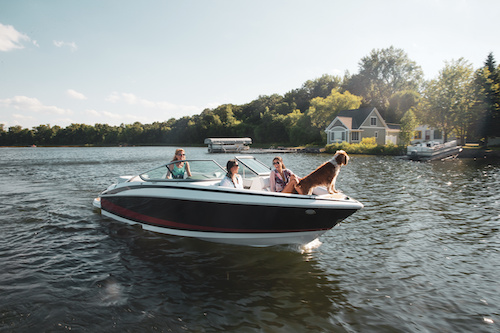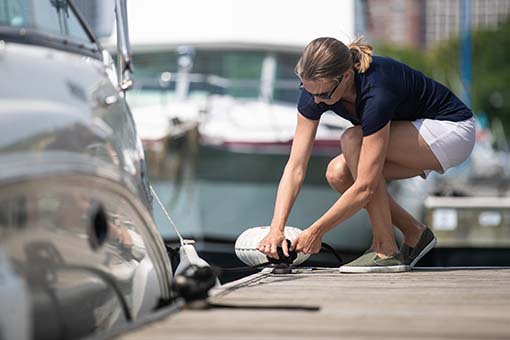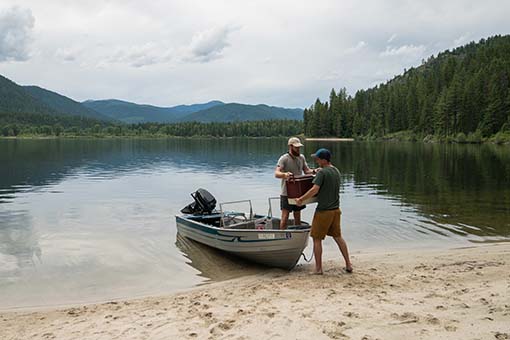8 Tips for Planning the Perfect Weekend Getaway on Your Boat

If you have a boat, you’re in luck because you can skip crowded highways, packed national parks and crazy airports and instead, plan a multi-day outing on the water. Of course, pulling off a successful long weekend of boating takes more effort than jumping in your car and stopping for fast food on your way to a hotel, so let’s look at some planning you’ll need to do before untying the dock lines.
Choose a destination and work out how to get there
You don’t have to go far to have an adventure on the water. Whether you’re going a few miles up a river, exploring a new lake, heading from Florida to the Bimini or gunkholing on Chesapeake Bay, there’s lots to do when you’re on a boat no matter how far you go.
ick a destination where you will feel safe and that means taking into account the distances to cover in the time available, the weather you’ll encounter, and if you’ll be docking or anchoring and your comfort level with executing either of these. Check the charts to gage mileage, become familiar with hazards (narrow channels, rapid currents, low tides or construction), plan the route, select a place for the first (and possibly second) overnight location and download the latest charts as well as a weather forecast.
Choose who’ll be coming with you
Will your first overnight outing be with your family, partner or buddies? How skilled are any of them at helping you underway or with docking and anchoring? If you’ll have kids aboard, will you have enough adult supervision to manage them while others are busy with boat tasks? Will you need connectivity to check in with work or be able to reach emergency services if you’ll be out with older parents or anyone with health issues? Discuss everyone’s expectations and their role in the success of the trip.
Make reservations
Just like with a hotel, you’ll need to secure a place to land for the night. If you’ll be cruising to a marina or popular spot with moorings, call or go online to make reservations ahead of time. If you’ll be anchoring, you may want to check the popularity of the destination and what time you’ll need to arrive by to secure a good spot to drop anchor. Have a backup plan in case your destination marina or anchorage is full. (Reservations also go for boat ramps if you’ll need to launch.)

Prepare the boat
You wouldn’t take a long trip in a car that has low tires or no gas in the tank so consider the state of your boat and make a pre-departure checklist. Test the engine(s), generator if applicable, electronics, anchoring gear, heads and cooking facilities. Top up water and fuel tanks (and map out fuel/water stops if your trip will be a long one). Test bilge and freshwater pumps, check battery levels and the charging processes, inflate the dinghy and test the outboard since these may be the only way to get to shore where you’re going.
Find the location of lifejackets and make sure you have enough for everyone aboard. Check fire extinguishers and flares for expiration dates, inspect the first aid kit, test the VHF radio and launch and retrieve the anchor to make sure all works smoothly. Basically, double check everything.
Pack the essentials

Your packing checklist will be extensive and should include more than the obvious things like plenty of food, water and clothing for the conditions you’ll encounter. Pack fun surprise snacks even if you’re planning to eat ashore most of the time. Add things like sunscreen, seasickness medication, water toys and onboard entertainment or books in case you have to sit out a rainy afternoon. Bring personal medications and extra eye and sunglasses in case they go overboard. Have a way to stay dry, cool/warm, and rested.
Be mindful of easily overlooked items like extra batteries for flashlights, electronic device chargers, a dry bag to pack your cell phone or wallet when going to shore, towels, sleeping bags, bug spray, personal hygiene products, trash bags and toilet paper. Bring your boat documentation, park passes, boating license or operator’s certificate that’s required by your state, and a fishing license if you’ll be angling. Have your towing service up-to-date and have your boat insurance handy in case of a mishap.
Remain flexible
If you find a major issue with the boat or your experienced friend can’t make it that weekend, be prepared to reschedule for another day rather than risk putting yourself or others in harm’s way. If the weather isn’t cooperating, your target destination looks to be packed or your family needs more convincing, try shifting to another plan. There’s always another time to follow your original itinerary so relax and enjoy any outing on the water because you’re already ahead of everyone else who doesn’t even have a boat.
View the full article here.
